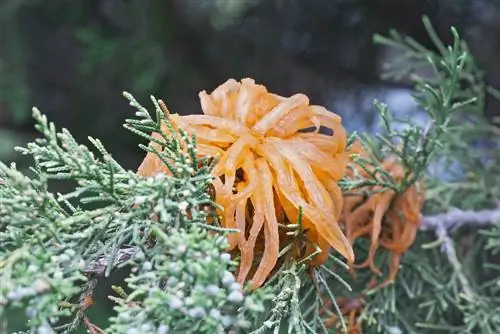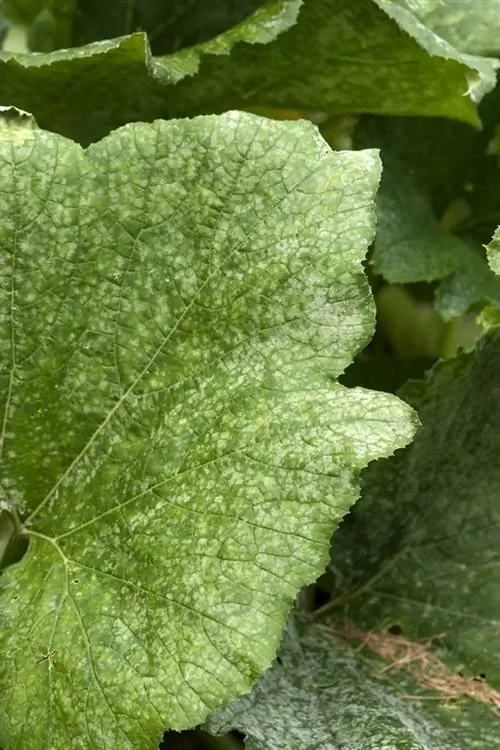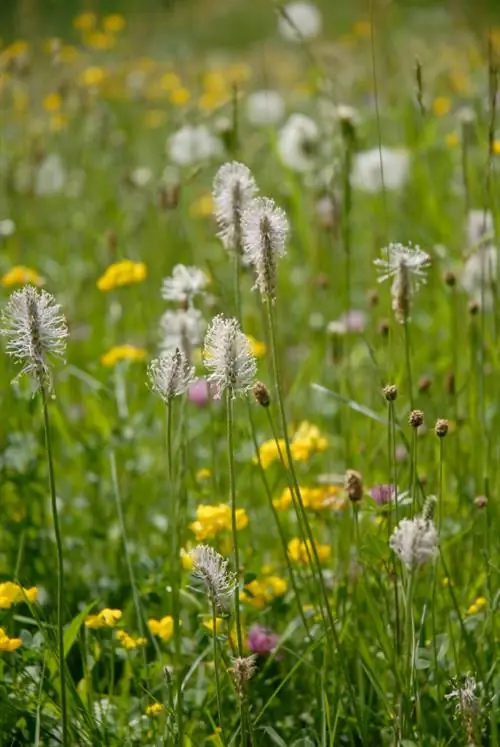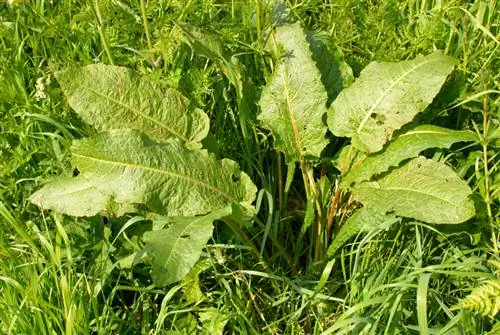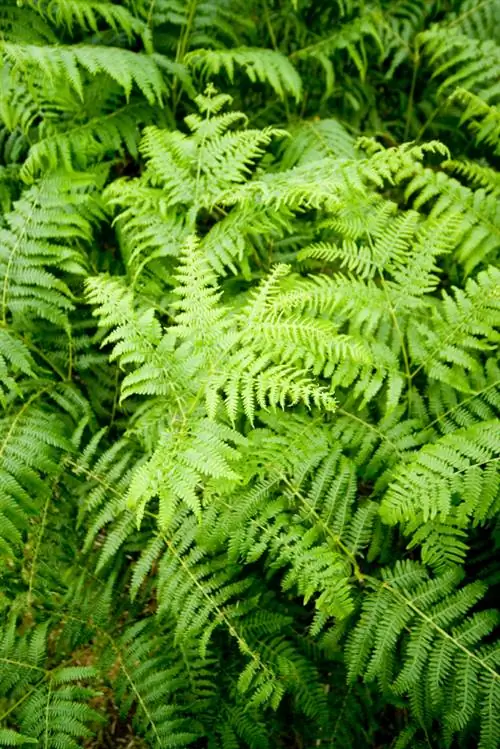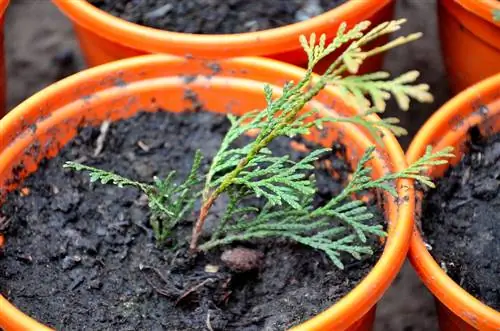- Author admin leonars@hobbygardeners.com.
- Public 2023-12-16 16:46.
- Last modified 2025-01-23 11:21.
Although the pear grate does not significantly damage the juniper, it should prevent the fungal spores from spreading. The disease can weaken pear trees and result in a smaller harvest. In addition to chemical control, there are alternatives to control and preventive measures.
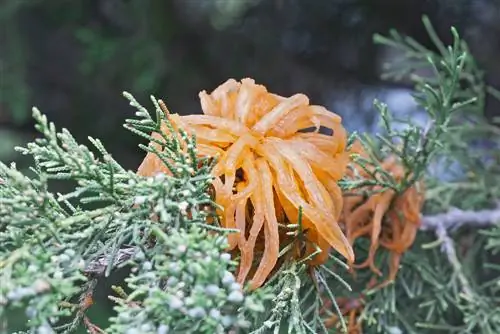
How can you combat pear rust on juniper?
To combat pear rust on juniper, you should prevent the fungal spores from spreading, do not plant juniper and pear trees in close proximity to each other, choose robust juniper varieties and strengthen the plants with field horsetail and nettle extracts.
Chemical control
There are few fungicides that can be used specifically against pear rust. They must be used early to prevent further spread of the spores. An injection is only successful if it is carried out immediately when typical symptoms first appear. Subsequent applications are useless as the fungus survives in the wood and is not damaged. Anti-scab remedies can also be used to combat the disease.
Alternative methods
Since the rust fungi are very host-specific, an infection between juniper and pear tree is not always inevitable. Before you proceed to the drastic measure of clearing, you should find out whether the rust fungus can actually infect a fruit tree in the area. If this is not the case, generous removal of the branches is usually sufficient. However, this measure does not ensure that the fungus has been completely removed. It often sits very deep in the wood.
Prevention
In order to prevent the fungal spores from spreading, the life cycle must be interrupted. This is only possible if the two host plants do not grow in close proximity to each other. The spurs can easily cover distances of 500 meters. To be on the safe side, no juniper should be planted within one kilometer of a pear tree.
Alternatively, you can choose robust varieties. The rust fungus colonizes the wood of Pfitzer's juniper, Chinese juniper and the Sade tree. The fungus can survive in the wood of these species for years and develop new fruiting bodies every spring that produce masses of spores.
These species are not affected:
- Common juniper (Juniperus communis)
- Creeping juniper (Juniperus horizontalis)
- Scale juniper (Juniperus squamata)
Plant Strengthening
Regular use of field horsetail and nettle extracts have proven to be effective measures to prevent infestation. The solution is sprayed weekly on the entire plant. The silica it contains strengthens the plants and makes them more robust against infestation by pear rust.

